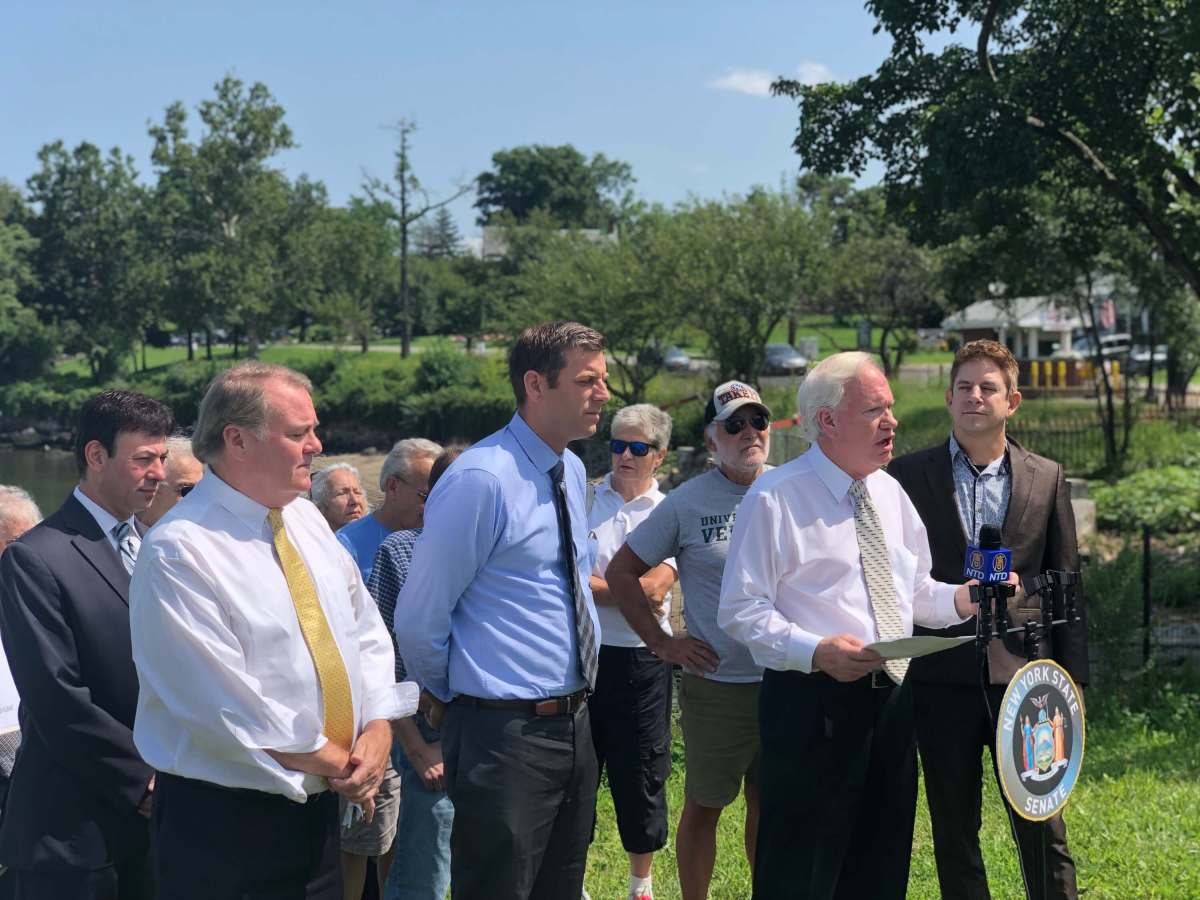The fight against increased aircraft noise in northeast Queens took on a different perspective after a new study looked into the health risks associated with noise.
On Aug. 21, state Senator Tony Avella and Assemblyman Edward C. Braunstein stood with Dr. Peter Muenning from Columbia University’s Mailman School of Public Health to discuss a new study by Columbia University, entitled “The Trade-Off between Optimizing Flight Patterns and Human Health.” Representatives of Congressman Tom Suozzi, Congresswoman Grace Meng and members of the community were also in attendance.
In the summer of 2012, northeast Queens residents saw that there was a huge increase in aircraft noise, including airplanes and helicopters, over their heads. An investigation performed by Avella and Braunstein found that the Federal Aviation Administration (FAA) began to implement new flight patterns without notifying residents.
The Columbia study looked into the increase in airports transitioning into automated flight systems, called TNNIS Climb, a change that was also implemented at LaGuardia Airport six years ago. In addition to studying the cost benefits of switching to automated flight systems, the study explored the potential health risks that could come with the increased air traffic over populated areas.
The study found that despite the efficiency of the flight automation systems, if a a careful assessment of noise isn’t performed they may generate flight paths over densely populated areas and cause serious health conditions for residents in those areas.
“The FAA places a very high value on lives inside airplanes, but places a low value on those inside their homes,” Muenning said. “Reducing airplane noise would prevent more deaths than screening for breast or colon cancer, and it would do so at a lower cost.”
“This study confirms what we have believed all along, that year-round use of the TNNIS climb has a detrimental impact on the health of residents who live within its path. The study also shows that the economic benefits generated through the use of this new NextGen departure procedure are not as significant as we have been led to believe and do not outweigh the costs associated with the negative health effects it has created,” Braunstein said.
Aircraft noise continues to be a long-standing issue for northeast Queens. After a number of complaints about noise on Long Island, aircrafts were re-routed to fly over the north shore of Long Island, however northeast Queens was not protected.
On July 30, representatives from Queens, including Avella and Suozzi, met with local officials to discuss the mitigation of helicopter noise in northeast Queens.
“Not only have resident been bombarded with noise for years, this study confirms that their health may have been impacted, too,” Avella said. “With completion of this study, we can begin to see what the actual public health effects are due to these flight patterns. In fact, the study shows that people could lose up to one year out of their lifespan due to these negative effects. This is shocking and requires further study to reveal any additional impacts on human life.”































